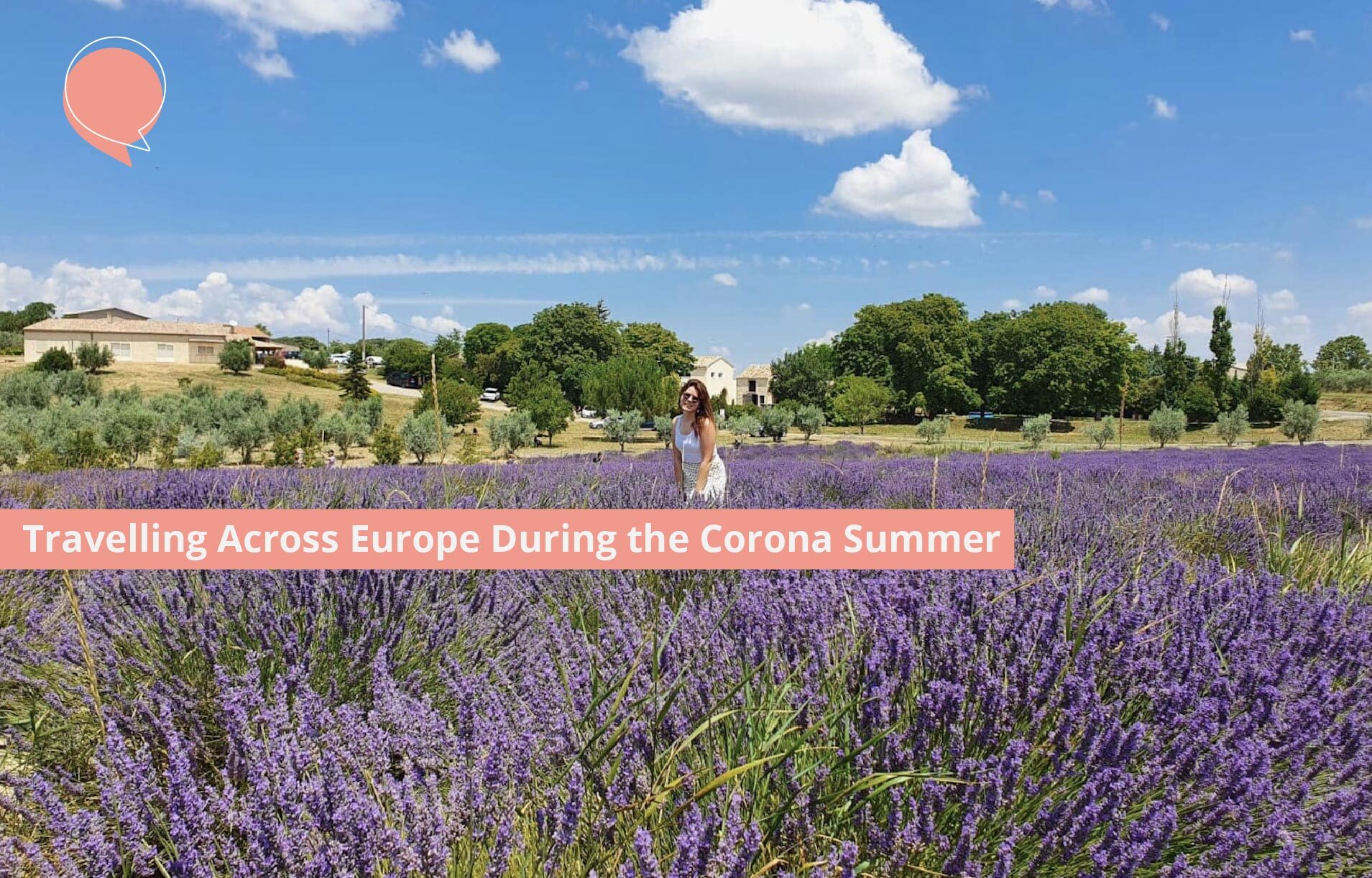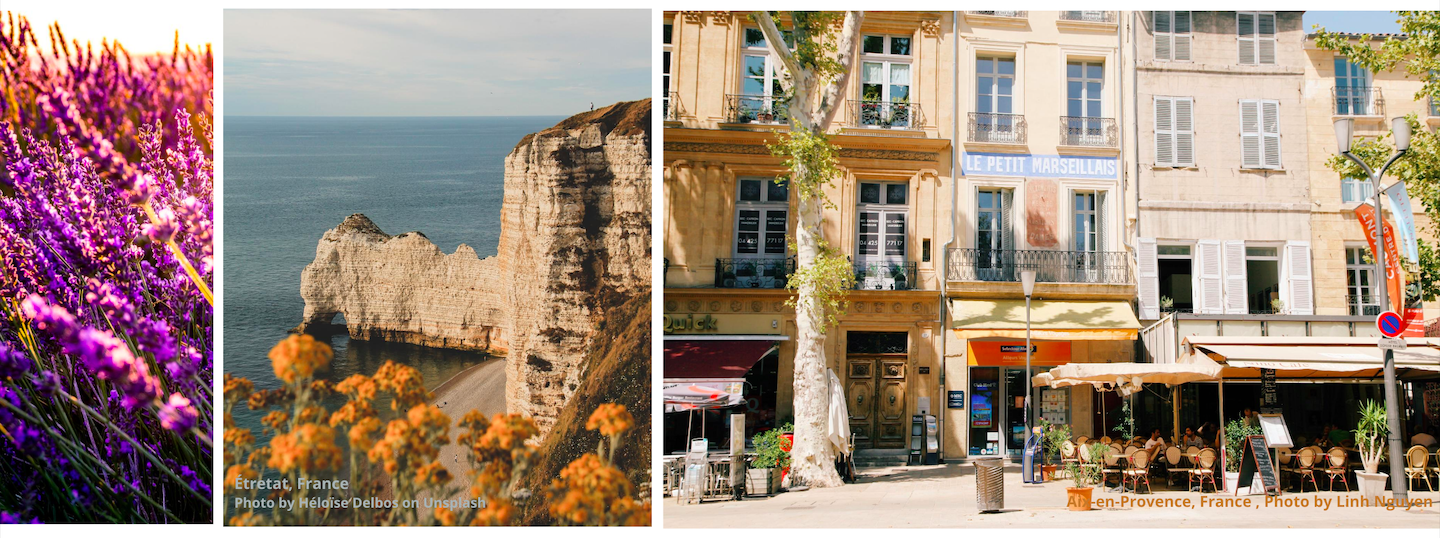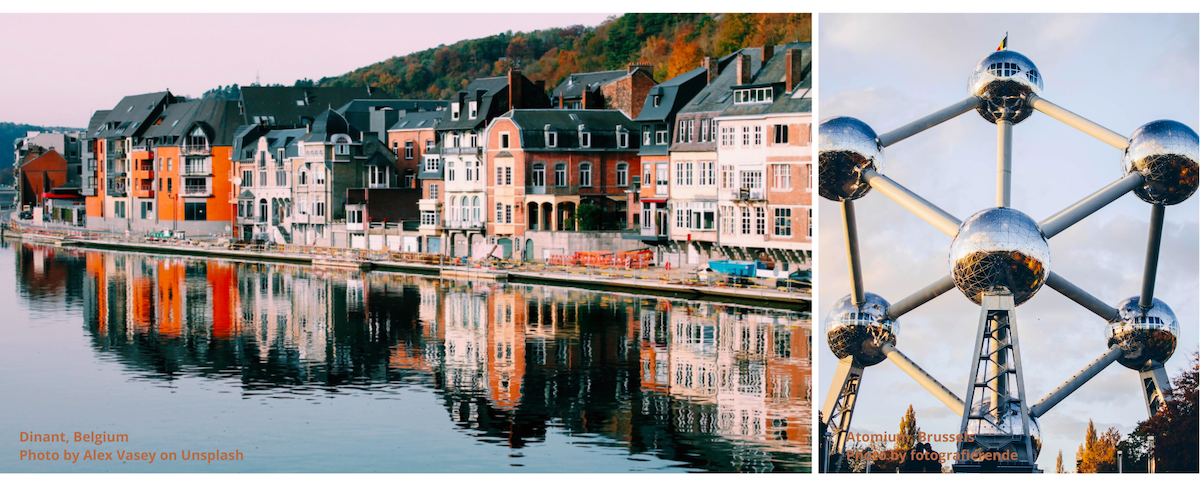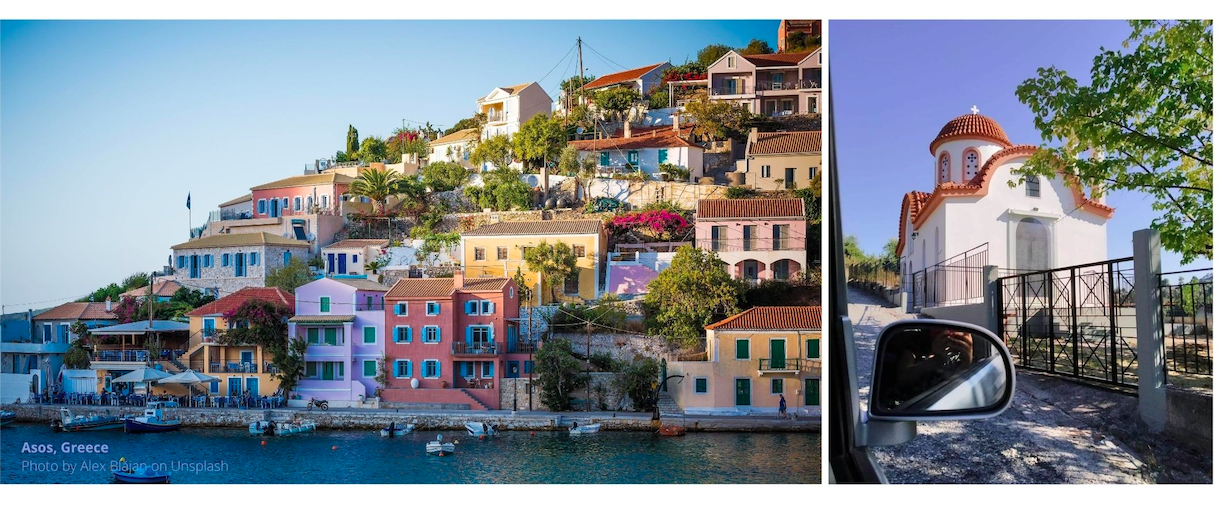
It is again possible to go on holiday in many European countries. The travel advice for many of them has changed from ‘orange’ (holiday travel not recommended, only necessary travel) to ‘yellow’ (holiday travel possible, watch out for potential risks). In this article, we asked internationals about their vacations during these pandemic times.
FRANCE
You are sipping coffee in a charming cafe, watching people passing by and admiring the works of brilliant painters at the Louvre or a walk in the lavender field. In France, you can find art and nature and take a rest. France allows tourists again. Entry and exit restrictions are at ease, but you may be checked for symptoms at the border. The local measures taken against the spread of the coronavirus have also been relaxed.
According to Statistics Netherlands (CBS), France is the country that attracts the most Dutch holidaymakers (more than one million each year). No wonder that many Brabants are also heading there. “Masha, my girlfriend wanted to go to the seaside, and my friend was going by car to his family in France, so it was the easiest way to get to the sea. Because of the corona pandemic, I could work remotely. We spent over one week in France, first in Aix-en-Provence, then we traveled to Marseille and Nice. It was an enjoyable time, although I was working, so I didn’t notice much at this time. It wasn’t my first time in France, and I saw that there were fewer tourists. Once, we went to a bar for a live concert, and It was almost empty there,” says Łukasz from Eindhoven, who is working for ASML.

Masks must also be worn in public places as well as restaurants. “You can take off your mask at the table. However, when moving around, e.g., when going to the toilet, you must wear it. It’s not comfortable, especially if you wear glasses as I do. But you get used to it,” says Masha, a Russian language teacher. Wearing a mask has been compulsory in closed public places since July 20, everywhere in France, but some municipalities go further. They make it mandatory even in the streets. This is particularly the case in La Rochelle in Charente-Maritime and Concarneau in Finistère.
Before you go have a look at current travel measures implemented in France
Please refer to the Government travel regulations advisory, here are some of the current measures for your reference.
- You have to wear masks in closed places: in restaurants, banks, hospitals, in public transport, in shops, etc. There is a fine of 135 euros if you do not have a mask.
- Museums, like the Louvre, are now open. To ensure optimal conditions, all visitors will be required to book a time slot and wear a mask in the museum.
- Beaches, lakes, bodies of water, nautical activity centers – are now open.
- To keep the disease at bay, stay more than a meter away from each other.
- Strict health rules apply for shows, cinemas, casinos, and so on. There is an upper limit of 5,000 people per venue.
BELGIUM

Traveling from the Netherlands to Belgium is allowed. The Netherlands is marked as a ‘green zone’, which means you do not have to take any additional precautions. For more updated information, in English, please refer to the government website.
“We visited with the children Ostend which is a city on the Belgian coast. We aimed to go somewhere for a while. We were afraid of going further and didn’t want to risk having to stay in quarantine. That’s why we chose to go by car and nearby only. If necessary, we could always return to the country quickly. We were lucky because we were there a week ago, just before the second wave of coronavirus had started,” says Seda, who works as an English teacher in Eindhoven. Coronavirus infections in Belgium are rising at a fast pace, which means that wearing masks in public places is obligatory, as the last we checked.
What are the current measures in Belgium?
- If you are using public transport (bus, tram, or train) and are older than 12 years old, wear a face mask or a scarf covering your mouth and nose.
- Everyone over the age of 12 is obliged to wear a face mask or any other fabric alternative at the following locations: shops and shopping centers; cinemas; theatres, concert halls, and conference rooms; Places of worship & reflection; Museums;
- Pubs and restaurants are open until 1:00 a.m. It is best to make a reservation. Meet up with a maximum of 10 people. Stay seated at the table.
- All shops are open.
- Group gatherings are limited to a maximum of ten people, including children. This applies to all gatherings, regardless of whether they occur at home or outdoors (e.g., in a bar, in a cafe, in the park, etc.).
For more information, please refer to www.info-coronavirus.be & www.sciensano.be– plus a freephone helpline: 0800 14 689. You might be put on hold for some time.
GREECE

Do you feel like going on holiday to the Mediterranean? Swimming in the warm sea and lying lazily on the beach or admiring ancient buildings, eating moussaka, and fresh feta. This destination can still be a good option for a vacation.
Katerina is Greek, and for her, it is more about visiting family than going on holiday. “I don’t see my relatives often, and for the past few months we couldn’t go anywhere, so I decided with my husband to go to my hometown Chalcis, when it would be possible. Now the borders are opened again, so we can finally go!” happily shares Katerina. We wish you and all our readers the wonderful summer break with your loved ones near and far!
What are the current measures in Greece?
- Masks: A mask or facial cover is mandatory in supermarkets, public transportation, taxis, elevators. Masks are recommended in hair salons and other enclosed spaces. Violators may be fined 150 Euros.
- Flights: International airports in Greece are open and operational. Twenty-four hours before entering Greece, visitors will have to fill in a Passenger Locator Form (PLF) to provide their contact details in the country. You can download it from Travel Greece Website. Targeted and random testing will take place to aid epidemiological research.
- Ferry operators and airlines may require travelers to complete a health status questionnaire, submit a temperature check, and wear a mask. The health form is available in English and provided by transportation operators on site.
- Shops, bars, and restaurants are open in Greece, but capacity is regulated.
- All hotels are allowed to open, and so is AirBnBs, so you should easily find a place to stay. You should book before you travel.
- If you are tested, and the result is positive, you will need to quarantine or self-isolate either.
Travelers should be prepared for the possibility that the Greek government could implement additional travel restrictions with little or no advance notice. If you develop a fever and respiratory symptoms such as shortness of breath or cough, stay indoors and immediately seek medical attention by contacting the National Public Health Organisation on 1135.
Remember, you can go on holiday abroad, but note that the situation can suddenly change locally in the event of a new outbreak. If you decide to go on vacation, the government’s advice is to stay vigilant, prepare well, and make sure you’re well informed.
Note: In your bag you should keep a hand sanitizer with more than 60% alcohol content, disinfectant wipes, tissues, and a face mask. These items can help you maintain a certain level of hygiene and prevent contact with corona-causing respiratory droplets. Wiping down your surroundings time to time and minimizing human contact may help you to protect yourself from the disease as well.

Keeping you up-to-date on what you need to know about the latest information during COVID-19.
Please feel free to ask questions, make remarks, or suggest other sources.
We Are Not Alone Campaign, is presented in collaboration with Expat Spouses Initiative – Eindhoven, LIVING IN , Holland Expat Center & Brainport Eindhoven. Through this campaign, we aim to bring the International community together and engage them actively.
In collaboration with

